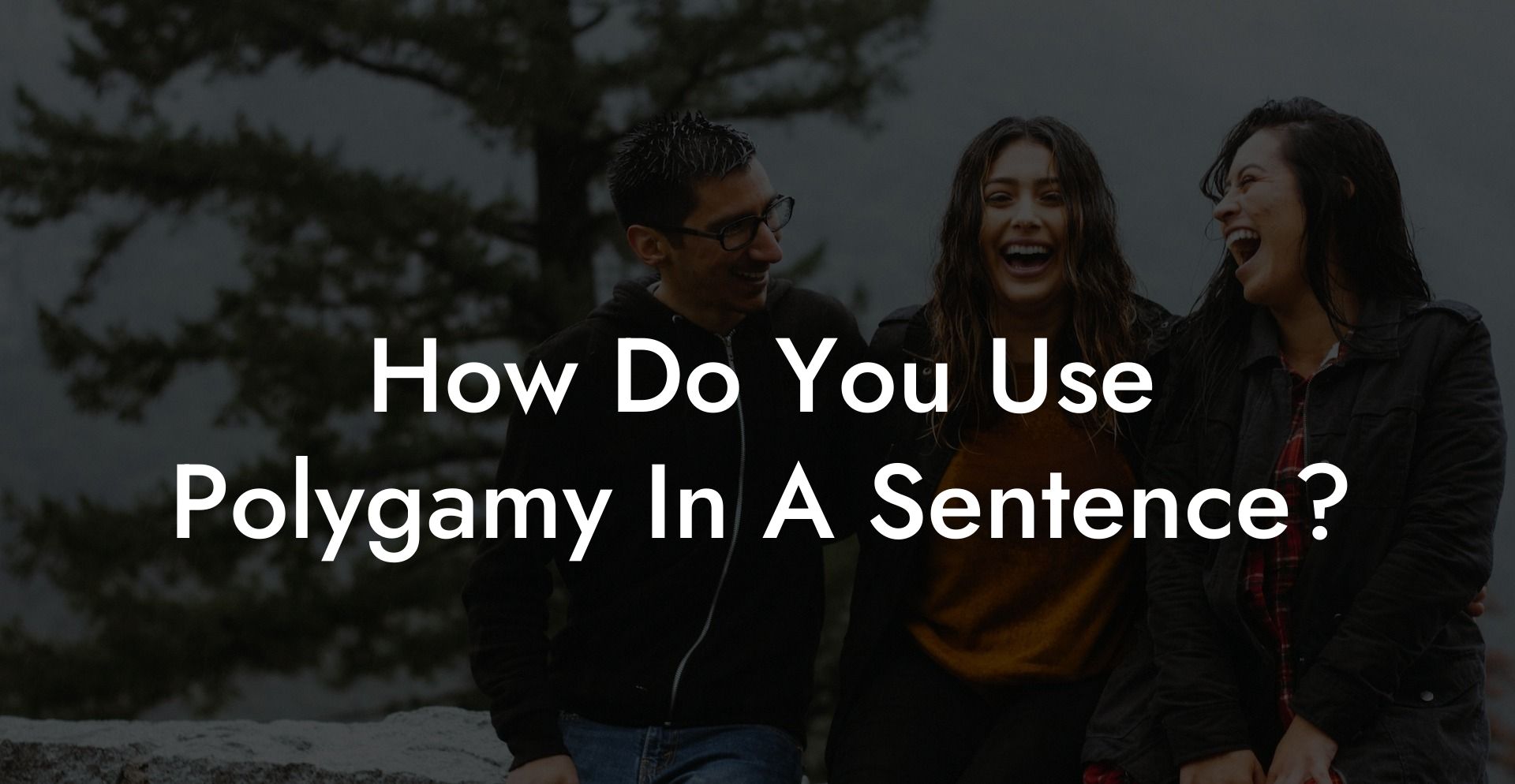Polygamy – the practice of having more than one spouse – is a topic that intrigues and baffles many, and its usage in everyday conversations can be quite fascinating. As people become more aware of the various relationship structures that exist, questions about polygamy and its place in society continue to arise. Whether you are discussing the concept with friends or trying to navigate polyamorous relationships yourself, it is essential to understand not only the meaning of polygamy but also how to use the term correctly. In this article, we will explore the various ways to use "polygamy" in a sentence, while also touching upon its cultural context and considerations to keep in mind.
How Do You Use Polygamy In A Sentence Table of Contents
Understanding Polygamy and Its Types
Before diving into sentence examples, it's crucial to understand what polygamy entails. Polygamy is a marriage or relationship structure in which an individual has multiple spouses or romantic partners concurrently. While often associated with religious or cultural practices, polygamy also exists as part of the broader spectrum of ethical non-monogamy. There are two main types of polygamy:
Polygyny
This is the most well-known form of polygamy, where a man has multiple wives. It is often practiced in various societies and religious groups worldwide, including some fundamentalist sects of Mormonism and Islamic communities.
Polyandry
This is a less-common form of polygamy, where a woman has multiple husbands. It is practiced in certain regions of Nepal, India, and Tibet, as well as among some Indigenous communities in the Americas.
Examples of Using Polygamy
- Many people mistakenly use the words polygamy and polyamory interchangeably, even though they refer to distinct relationship structures – the former involves marriage, while the latter denotes consensual, ethical non-monogamy without the requirement of marriage.
- Societal opinions on polygamy often vary, with some cultures embracing and even celebrating the practice, while others deem it illegal and taboo.
- The popular television series, "Big Love," provided mainstream viewers with an intimate look at the complexities and challenges faced by a polygamous family living in contemporary America.
- Some argue that polygamy inherently supports gender inequality, as the most common form, polygyny, often involves patriarchal control and unequal power dynamics among the spouses.
- Yet, supporters of polygamy maintain that it can lead to increased financial stability and emotional support for those involved, especially in societies where resources are scarce or gender imbalances are more prevalent.
- Anthropological studies of polygamous cultures reveal fascinating insights into human mating and familial practices, as well as the intricate social dynamics at play within these communities.
As conversations around alternative relationship structures continue to evolve, gaining a clear understanding of polygamy's usage in day-to-day language is crucial. We hope that this guide has effectively demonstrated the various ways to use "polygamy" in a sentence and has provided context to better understand the practice.
Keep exploring The Monogamy Experiment for more in-depth guides on monogamy, polyamory, and everything in between. Feel free to share this post with friends and acquaintances – who knows, you might spark an intriguing conversation on the ever-fascinating topic of human relationships!













